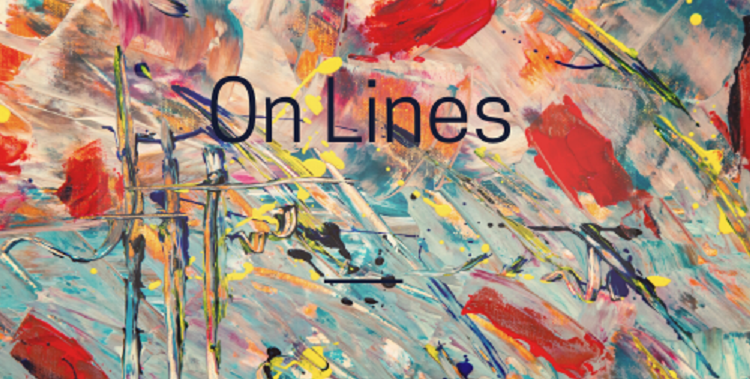Albus McInerney edits a literary magazine.
Marianne has two children of school age, so, during our weekly Zoom call we touched upon the challenges facing parents and education authorities as children return to the classroom.
‘They’ll be fine,’ Marianne said. ‘They are climbing the walls at home. They need new walls to climb.’
‘Hmm,’ Kim said. Kim has a medical degree as well as a PhD.
‘Chekhov would have been against premature re-opening,’ I noted. ‘He had first-hand experience of typhus and . . . that sort of thing.’
As I spoke, I realized a knowledge of linguistics is no basis for the making of epidemiological pronouncements – but then I thought: everyone else is making epidemiological pronouncements and most of them know as little as I do, so I added, ‘He wrote a whole book about typhus in Sakhalin . . . I think . . .’
‘It was cholera that exercised Chekhov,’ Dimitri said, ‘in Moscow and thereabouts. His Sakhalin book is more about the evils of the penal system. But you’re right, he would probably have placed public health above other considerations. He was a conscientious doctor – very generous, didn’t charge.’
‘They call me and I go. / It is a frozen road / past midnight, a dust / of snow caught / in the rigid wheeltracks,’ Patrice said.
‘That’s not Chekhov,’ Marianne suggested a little uncertainly.
‘William Carlos Williams?’ Kim asked.
‘Correct,’ Patrice said. ‘On the limitations of the doctor’s art.’
As we were apparently on the topic of literary physicians, I was going to mention that Arthur Conan Doyle modeled Sherlock Holmes on his old anatomy professor at Edinburgh University – but I then I concluded that my inaccurate recollections about Chekhov might have dented my credibility in this particular field, so I remained silent.
‘Wasn’t Arthur Conan Doyle a doctor?’ Marianne asked.
‘He was,’ Kim said, ‘and so was Keats.’
‘Didn’t do him much good,’ Dimitri remarked, rather acerbically.
‘Well,’ Marianne said, ‘the medical science of the time had no response to tuberculosis.’
‘Chekhov was in the same predicament.’
‘So, they explored alternative responses to the problem of existence when they wrote,’ I said. ‘It was their way of sidestepping the limitations of their profession.’
It was, I felt, an eminently valid point.
‘Ah,’ Patrice said, ‘. . . for I will fly to thee, not charioted by Bacchus and his pards, but on the viewless wings of Poesy . . .’
‘Ode to a Nightingale,’ he added for the benefit of the rest of us.
‘What about Bulgakov?” Kim asked.
There was a silence and then Dimitri said, ‘Bulgakov?’
‘He was a doctor,’ Kim said. ‘Served at the front in the First World War . . .’
‘He did,’ Patrice said. ‘If memory serves, he was wounded and was given morphine. Is that what caused those grandiose flights of fancy in The Master and Master and Margarita.’
‘No, no, Patrice,’ Dimitri said, suddenly and uncharacteristically earnest, ‘He weaned himself away from morphine. The flights of fancy were his response to the Terror.
‘William Carlos Williams was a cardiologist, wasn’t he?’ Marianne said.
It occurred to me that we had drifted rather far from the original subject – the advisability or otherwise of sending children back to school in the midst of a pandemic.
‘A pediatrician,’ Dimitri corrected, and then he added, ‘But undoubtedly a heart specialist in the non-medical sense.’
‘Night is a room / darkened for lovers,’ Patrice said, ‘through the jalousies / the sun has sent one golden needle! / I pick the hair from her eyes / and watch her misery / with compassion.’
‘Patrice, you cannot possibly have that from memory!’ Marianne said, almost accusingly.
Patrice chuckled. ‘I looked it up when you were talking. But it’s from the poem I quoted before – about the doctor’s ultimate incapacity and the poet’s ability to see to the heart of the matter.
‘None of this helps Marianne resolve her dilemma,’ I said.
‘Oh, there’s never a resolution,’ Kim said with sudden but not unkind conviction. ‘Life is what happens – and poetry is about how we put up with it.’
For, lest o’ersaddened by such woes as spring
To rural peace from our meek onward trend,
What else more fit? We’ll draw the latch-string
Kim said.
And close the door of sense; then satiate wend,
On poesy’s transforming giant wing,
To worlds afar whose fruits all anguish mend.
‘Williams again,’ she explained. ‘And, yes, I do have that one by heart.’
Soon after this, we returned to the question of who should write the introduction to the next issue of the magazine.
